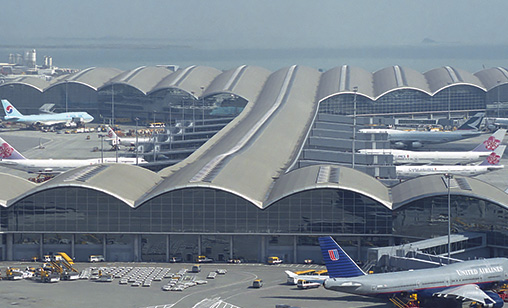Addendum
New blow to Hong Kong as Wuhan virus spreads beyond China
February 1st 2020
Just when it was thought things could not get any worse for Hong Kong’s decimated travel industry, they did. Read More »
At press time, the Hong Kong Special Administrative Region (HKSAR) had closed its borders between Hong Kong and China except at Hong Kong International Airport, the Hong Kong-Macau- Zhuhai Bridge, the Shenzhen Bay-Hong Kong crossing and Kai Tak Cruise and Ocean terminals. Cargo clearance procedures are not affected.
 |
Visitors to Hong Kong from the Mainland have dropped by 91% since January, the HKSAR government has reported.
Hong Kong has recorded its first death from the virus. Within the same 24 hours, medical experts warned the virus appeared to be spreading from “invisible sources” as two Hong Kong patients confirmed with the virus had not travelled to China.
Jitters have spread across the HKSAR and the Mainland as a result of the outbreak. Citizens fear a repeat of Severe Acute Respiratory Syndrome (SARS), when a Chinese tourist contracted the virus on the Mainland and introduced it unknowingly into Hong Kong.
Panic ensued, restaurants, hotels and airplanes almost emptied and the region’s economy took a direct hit to its collective bottom line.
This time around lessons learned from SARS have been put into force quickly, including more isolation wards, one new hospital dedicated to treatment of victims of novel coronavirus and the setting up of quarantine camps in Hong Kong and on the Mainland for patients diagnosed with the disease along with their families.
Cathay Pacific Airways has announced it would gradually reduce its services between Hong Kong and China by 90% in its most recent profit announcement to the Hong Kong Stock Exchange. Cathay Pacific Airways regional airline, Cathay Dragon, has radically cut back its network into China.
The airline group said the cancellations would be implemented “in view of the novel coronavirus outbreak and the consequential significant drop in market demand for their flights”. It described the reductions as temporary.
Analyst Jefferies said “inevitably Hong Kong could face downside pressures to the economy after eight months of political protests have forced it into recession”. The listed transport sector – airlines, airports and railways – would be the most impacted followed by the retail and hospitality sectors, Jefferies said.
China’s Zhong Nanshan, a specialist in the treatment of SARS and a director of China’s State Key Laboratory of Respiratory Disease, said in late January the key to controlling the spread of the disease was to prevent the emergence of super-spreaders, infected patients who quickly spread the virus, especially among medical workers.
Airports across the Asia-Pacific have strengthened their detection systems for travelers from China. All carriers with networks into Mainland cities have radically decreased frequencies and capacity.
Several major industry events in the region have been cancelled or cut back as experts forecast the virus has yet to hit its outbreak peak.
Before the Wuhan crisis began to unfold, Hong Kong International Airport (HKIA) reported its biggest passenger decline in a decade last year. It processed 71.53 million travelers, a decline of 3.2 million over the previous 12 months.
Travelers, particularly from China, had turned their backs on the HKSAR in the last months of 2019 as anti-government and anti-Mainland protests did not let up.
At the time, Cathay Pacific said it would “reluctantly” reduce its overall seat capacity in 2020 by 1.4% year-on-year “in light of the immediate commercial challenges we are facing”. It had planned growth of 3.1% in 2020.
For HKIA, the 4.2% fall in passengers was the largest decline since the global financial crisis caused a 5% drop in 2009. Despite the present situation, HKIA remains the world’s busiest air cargo hub. It handled 4.8 million tonnes of air freight in 2019, down 6.1% on 2018. “We went through a challenging year in 2019,” HKIA executive director of airport operations, Vivien Cheung Kar-fay, said. By staff writers.